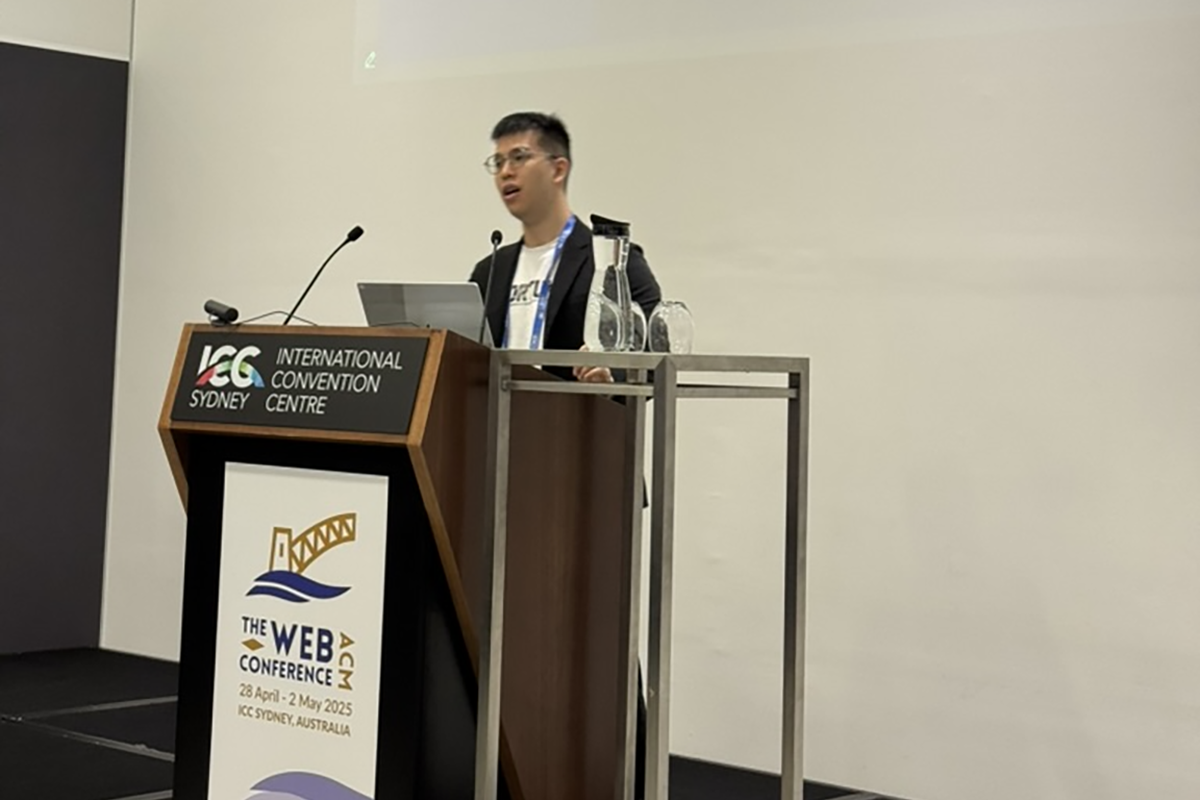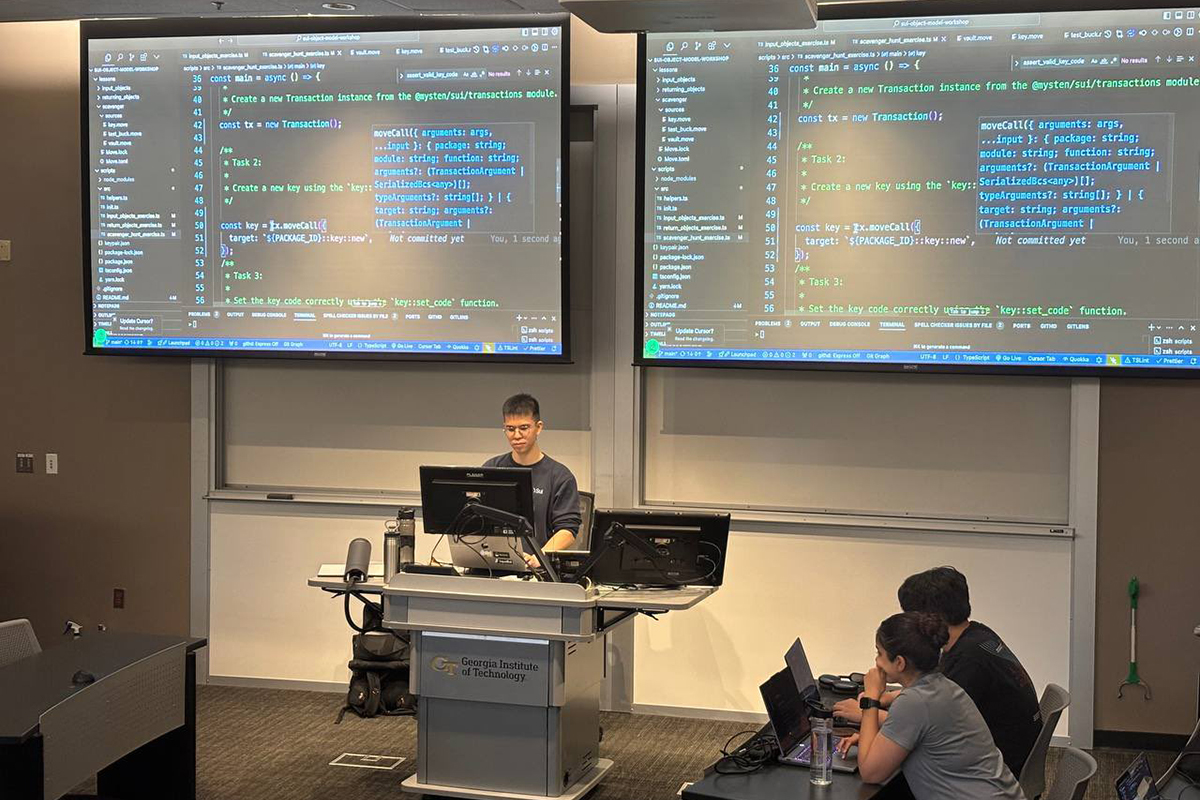
By Hannah Kinney-Kobre | Image: Eason Chen presenting his paper at ACM The Web Conference
Eason Chen, a second-year Ph.D. student in Carnegie Mellon University’s Human-Computer Interaction Institute, has spent the past several years working on SuiGPT MAD (Move AI Decompiler) — a tool to help increase transparency around blockchain technologies. His innovative work was brought to the attention of University Libraries’ Open Source Programs Office (OSPO), who helped to support his project. Now, Chen’s project is getting international recognition — and could prevent millions of dollars in blockchain-managed assets from being stolen or frozen in the future.
SuiGPT MAD deals specifically with a part of blockchain technology called smart contracts. Smart contracts are automated digital processes stored on the blockchain that execute and verify themselves automatically when certain conditions are met, allowing users a greater degree of certainty in their transactions. They’re an essential part of decentralized finance and gaming transactions, with smart contracts managing $96 million in assets around the globe.
Smart contracts are often written in a language called Move. While Move is more secure than other options, it’s also harder for the average user to interpret; contracts written in Move tend not to be open-source, and when their code is decompiled it can be difficult to understand and impossible to recompile and verify — meaning there’s no easy way for non-expert users to audit the smart contracts they’re relying on in their transactions. This vulnerability leaves them susceptible to hackers, resulting in the loss of millions of dollars.

Eason Chen, leading a workshop on Move at Emory University
Chen’s SuiGPT MAD changes that. Instead of the way smart contract decompilers typically work, SuiGPT MAD uses large language models (LLMs) and prompt engineering to convert complex machine-level smart contract code into more easily auditable and re-compilable source code. This allows developers to validate contract logic through testing and security analysis — even when the original source code is unavailable.
But training GPT on Move took an incredible amount of time and brainpower — so much that Chen couldn’t do it alone. OSPO provided Chen with a mini grant designed to fund on-campus student work in open-source development so he could access necessary resources, like research assistants and annotation tools.
Today, SuiGPT is free and available to the public, allowing anyone to decompile smart contract programming language into something users new to the blockchain or programming can understand. And just a few weeks ago, Chen presented a paper based on SuiGPT at the ACM Web Conference 2025 in Sydney, Australia — one of the most prestigious venues for sharing web and systems research globally.
Today, SuiGPT MAD is available to the public at suigpt.tools/mad. Users can decompile contracts directly from the blockchain and even interact with an AI assistant to explore potential vulnerabilities — making smart contract auditing more accessible than ever. Learn more about Chen’s research in his paper, which outlines SuiGPT’s architecture and its impact on improving code readability and auditability in decentralized systems.
